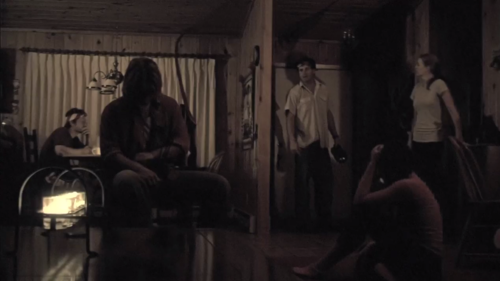
It’s pretty evident when watching Attack of the Tattie-Bogle that the indie slasher is a passion project.
Let’s bitch it out… [Read more…]
The curated portfolio of film journalist Joe Lipsett
by Joe Lipsett

It’s pretty evident when watching Attack of the Tattie-Bogle that the indie slasher is a passion project.
Let’s bitch it out… [Read more…]
by Joe Lipsett

There’s something magical about November, the first official co-production between Estonia, Poland and the Netherlands and Estonia’s official entry for Best Foreign Film for the 2018 Academy Awards.
Let’s bitch it out… [Read more…]
by Joe Lipsett
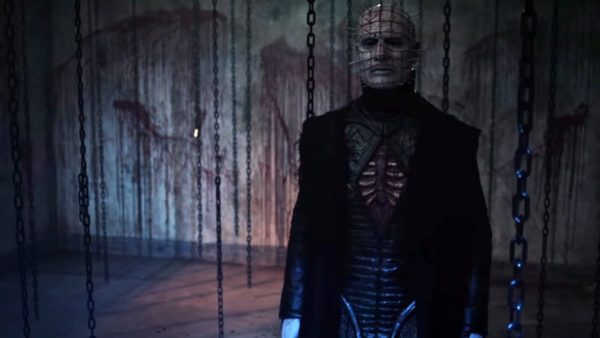
In He Said/She Said, critics Joe and Valeska dissect a film in a back and forth email exchange. Previously, we decided to list and not love the Netflix original The Open House (2017). This time, we’re debating whether or not Hellraiser: Judgment (2018) has any sights worth showing you.
Let’s bitch it out…
by Joe Lipsett
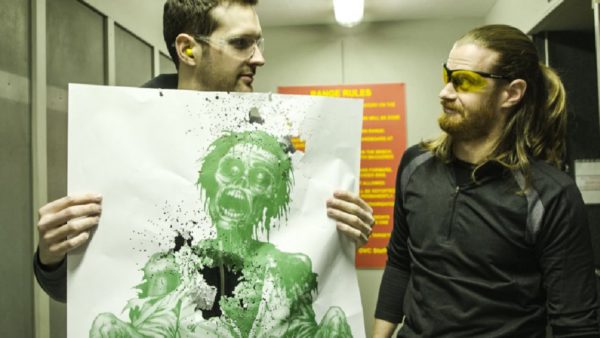
On its surface, Fake Blood has all of the trappings of any other found footage horror film. The film is a cautionary tale about two twenty-something filmmakers – Brad and Mike – who make low budget horror films. They’ve received minor acclaim and think little of the broader impact of their work until one day they receive a video of two men re-enacting a scene from their film, discussing how best to dispose of a corpse.
Not unlike most found footage films, the proceedings are presented as fact (ie: the two directors are the directors of the film and they use their own names). The video they receive sends the pair into a talespin as they ponder their responsibility as filmmakers for inciting (or is it inspiring?) violence in their audiences. And so begins a trip down the rabbit hole as they investigate the nuanced details of their own work: how long could a deadly fight actually last? How life-like is their low-budget gore compared to real wounds? And what is it really like for victims of violent crime?
These questions drive the “plot” of the film, which mixes found footage and true crime documentary tropes to create something inherently new. The guys eventually find themselves in well over their heads when the investigation leads them to a mob hitman named “John”, witness protection and eventually a murder, but these plot points are less captivating than the ideas that Fake Blood raises and the means by which it raises them.
Questions about life imitating art and vice versa have long been a part of the dialogue around true crime and horror films. There’s a history of the latter being based on real life serial killers and, in recent years, killers rationalizing, justifying and copying violent films for their own purposes. Fake Blood exposes this is a series of talking head interviews wherein Brad, Mike and their actors discuss films that are linked to real life violent events, as well their first exposure to film violence and how they interpreted it. Interspersed with these moments is footage of films such as The Matrix and Natural Born Killers. This documentary angle is hardly revelatory, but it brings the discussion to the fore in anticipation of the more meta(commentary) elements to come.
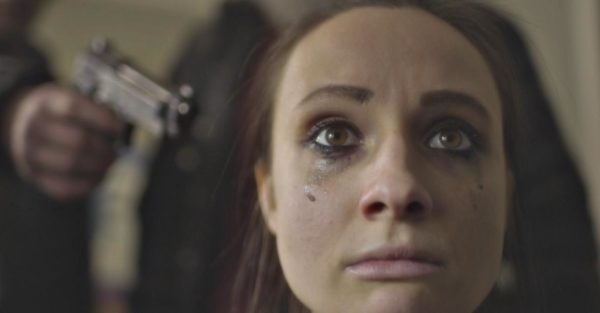
As the “plot” points involving “John” deepen and the threat of violence against the filmmakers escalates, the pair delve specifically into the details of his crime. As they pore over the casefiles and conduct web research, their discoveries are re-enacted by actors in true crime docuseries fashion, complete with staccato editing, stark lighting, slow motion and enhanced sound effects. The result is evocative of any number of true crime series on cable (Cold Case Files; I Survived, etc) that have gained popularity for sensationalizing real life crime stories.
And then – just when audiences are sucked into the violent re-enactment – either Brad or Mike will loudly yell “Cut!” and the video will return to normal to remind us that we’re only watching a fictionalized version of events (which are being presented as real, but are, in reality, also fictional). It’s a double layer of deception that is incredibly effective at reinforcing the fact that we, as audiences, are also actively consuming these violent acts, buying into the gore and contributing in some way to the dialogue that Fake Blood is engaging in.
In this way, even if the particulars of the “case” that Brad and Mike end up embroiled in are mildly underwhelming, the ideas about craving and celebrating violence and who is ultimately responsible for depraved acts that may or may not spill out of the screen is fascinating. Couple that with the tools that (the real) Brad and Mike use to dig into it, and you have an incredibly smart and effective film that denies easy categorization: part true crime documentary, part found footage horror film and 100% worth watching.
by Joe Lipsett
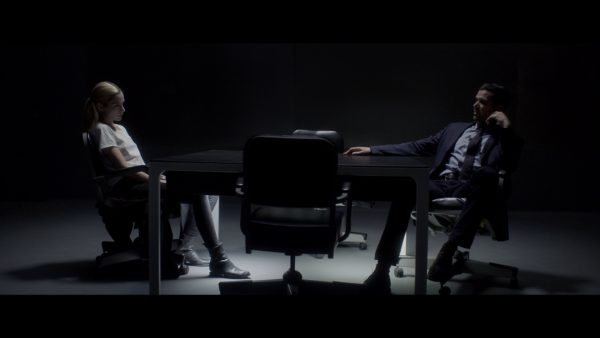
A talented Canadian documentary filmmaker debuts his fiction feature debut, featuring plenty of sex, murder and intrigue. So why doesn’t Birdland work?
Let’s bitch it out… [Read more…]
by Joe Lipsett

With the arrival of the Winter Olympics in South Korea, TV hits the snooze button. Expect a somewhat light month ahead of a massive storm of new and returning content in March.
Let’s bitch it out… [Read more…]
by Joe Lipsett
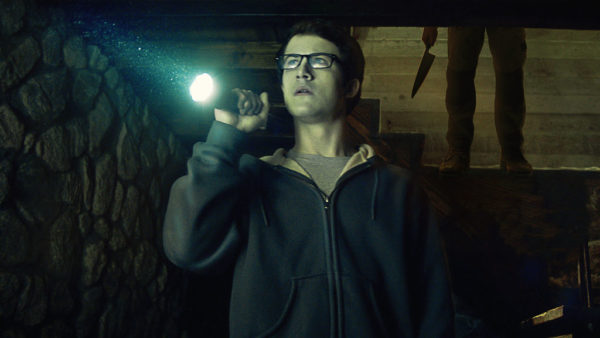
In He Said/She Said, critics Joe and Valeska dissect a film in a back and forth email exchange. Previously, we winced and shuddered our way through visceral maternal horror film L’interieur (2007). This time, we’re choosing whether to love or list Netflix original The Open House (2017).
Let’s bitch it out… [Read more…]
by Joe Lipsett
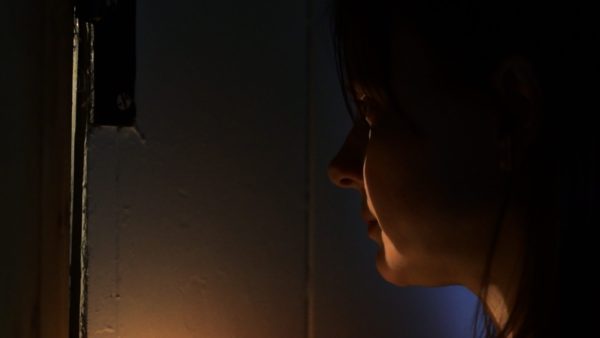
Brian Barnes’ The Redeeming makes its world debut at Horror-on-Sea festival.
Let’s bitch it out… [Read more…]
by Joe Lipsett

It’s the second (and final) weekend of the 2018 Horror-on-Sea film festival, so let’s discuss which shorts to catch.
by Joe Lipsett

There are lots of great shorts playing at Horror-on-Sea. Here’s a collection of ones to track down on the first weekend of the fest.
Let’s bitch it out… [Read more…]